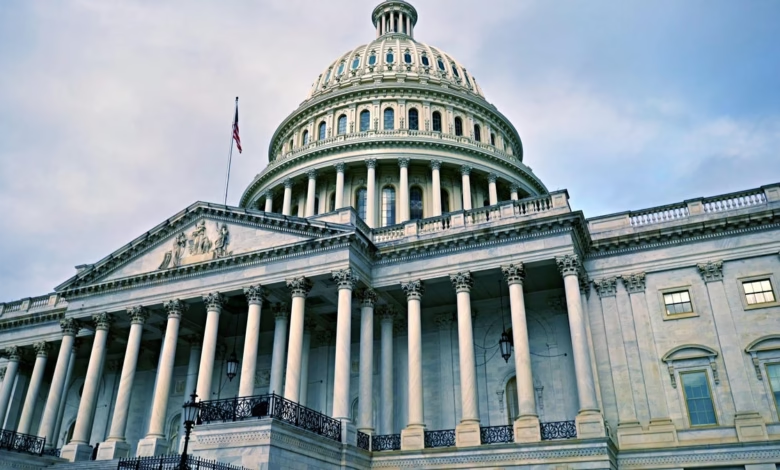Senate AI Ban Threatens Internet Access for States

▼ Summary
– The Trump administration’s tax bill includes a 10-year moratorium preventing states from enforcing their own AI laws, tying compliance to federal broadband funding.
– States would lose $42 billion in BEAD program funding plus $500 million in new funding if they enforce AI regulations, even for existing laws.
– The moratorium creates a “dangerous regulatory vacuum,” allowing AI companies to operate without oversight while federal AI policy remains unclear.
– States like New York, Texas, and Utah face a dilemma between enforcing AI safety laws (e.g., the RAISE Act) and losing critical broadband expansion funds.
– The Senate is reviewing the moratorium’s language to clarify its impact on existing broadband funding, with concerns it could reduce affordable internet access.
A proposed Senate rule could force states to choose between regulating artificial intelligence and securing billions in federal broadband funding, potentially leaving millions without reliable internet access. The controversial measure, tucked into a broader legislative package, threatens to withhold critical infrastructure money from states that enforce their own AI policies.
At the heart of the issue is the $42 billion Broadband Equity, Access, and Deployment (BEAD) program, which helps expand high-speed internet nationwide. Under the Senate’s amendment, states maintaining AI regulations risk losing this funding, along with an additional $500 million in new allocations. The rule effectively creates a 10-year moratorium on state-level AI laws, even those already enacted.
States like New York, Texas, and Utah now face an impossible dilemma, either abandon protections against faulty AI systems or forfeit money essential for closing the digital divide. New York recently passed the RAISE Act, requiring AI firms to disclose safety risks and face penalties for noncompliance. If the Senate rule passes, such laws would remain on the books but become unenforceable.
Experts warn the ban’s broad wording could also hinder oversight of automated decision-making in insurance, self-driving cars, and utility pricing. Jonathan Walter, a policy adviser, notes that vague restrictions might block states from addressing algorithmic bias, which disproportionately harms marginalized communities.
Meanwhile, federal AI policy remains in flux. While the current administration prepares to unveil its framework, states have stepped in with their own safeguards. However, this proposed moratorium could create a “dangerous regulatory vacuum”, allowing AI companies to operate unchecked for years.
Critics argue the measure undermines states’ rights and democratic experimentation. The Tenth Amendment traditionally reserves powers not explicitly granted to the federal government, including regulating emerging technologies. Some lawmakers oppose the provision, fearing it strips states of their ability to protect jobs, privacy, and civil rights.
If enacted, the rule could also disrupt existing broadband projects. By reapplying funding under new conditions, the NTIA might claw back already allocated money, delaying internet expansion in underserved areas. Walter warns this could leave millions without affordable, high-speed access, a setback for national connectivity goals.
As the Senate debates the language, the outcome could reshape AI governance and digital infrastructure for years to come. The decision hinges on whether lawmakers prioritize centralized control or state autonomy in an era of rapid technological change.
For updates on this developing story, subscribe to our daily tech newsletter.
(Source: zdnet)


